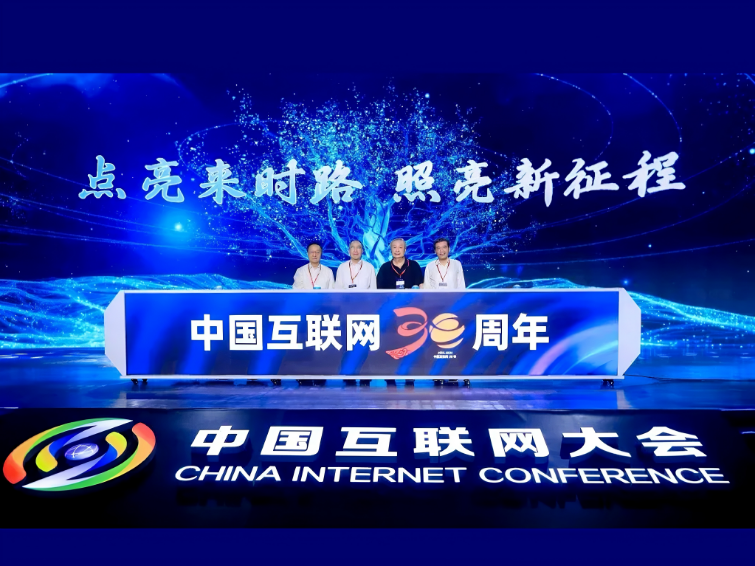- The 23rd China Internet Conference commenced on July 9, 2024, in Beijing, highlighting the theme “30 Years of Connectivity, New Transformative Quality.”
- Notable speakers included key industry leaders and government officials, such as Zhao Zhiguo, Chief Engineer of the Ministry of Industry and Information Technology.
OUR TAKE
As I absorbed the discussions at the conference, I felt a mix of awe and apprehension. The rapid pace of technological innovation is undeniably thrilling, promising to reshape our world in profound ways. Yet, amidst the excitement, I couldn’t shake a sense of unease. What will these advancements mean for the most vulnerable among us? How do we ensure that as we race towards a digital future, we don’t leave anyone behind? These questions weigh heavily on my mind, urging us all to approach progress with empathy and foresight, ensuring that our pursuit of innovation is tempered by a commitment to equity and ethical responsibility.
—Doris Du, BTW reporter
The 23rd China Internet Conference, hosted by the China Internet Association, opened on July 9, 2024, at the National Convention Centre in Beijing. This year’s theme, “30 Years of Connectivity, New Transformative Quality,” celebrates three decades of internet development in China.
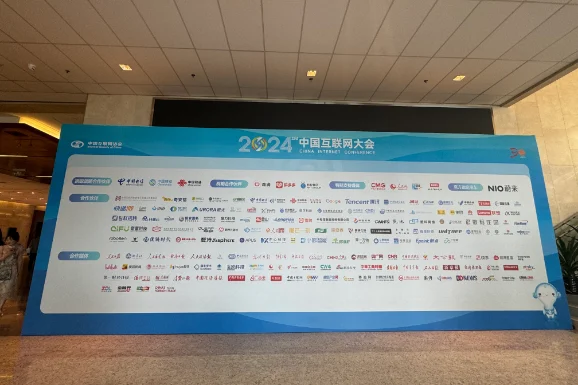
What happened
The conference began with an opening ceremony attended by key figures in the tech industry. Zhao Zhiguo, Chief Engineer of the Ministry of Industry and Information Technology, delivered a keynote speech emphasising the pivotal role of the internet in China’s national rejuvenation. He outlined four strategic areas: optimising infrastructure, fostering innovation, integrating digital and industrial sectors, and enhancing the internet’s development environment.
The entire industry must grasp the development direction from the historic mission of achieving Chinese-style modernisation, recognising deeply that the internet is a vital force in advancing national strength and the great cause of national rejuvenation.
Xu Xinchao, Deputy Secretary-General of the Beijing Municipal Government, highlighted Beijing’s leadership in the internet industry. In 2023, Beijing’s information and software sector revenue reached ¥2.93 trillion ($453 billion), leading the nation in scale and growth. Xu proposed four initiatives to further this growth: driving innovation, building robust infrastructure, ensuring legal governance, and fostering open cooperation.
Beijing has always been at the forefront, leading the development of China’s internet industry. In 2023, the information software industry generated revenue of 2.93 trillion yuan ($410 billion), leading the nation in both scale and growth. As we enter the internet 3.0 era, Beijing is pioneering multifaceted advancements.
Xu Xinchao, Deputy Secretary-General of the Beijing Municipal Government
A special ceremony titled “Lighting the Path, Illuminating the New Journey” commemorated 30 years of China’s full access to the global internet. Speeches by former ministers Wu Jichuan, Wang Xudong, Li Yizhong, and Miao Wei reflected on the internet’s transformative impact on China’s socio-economic landscape.
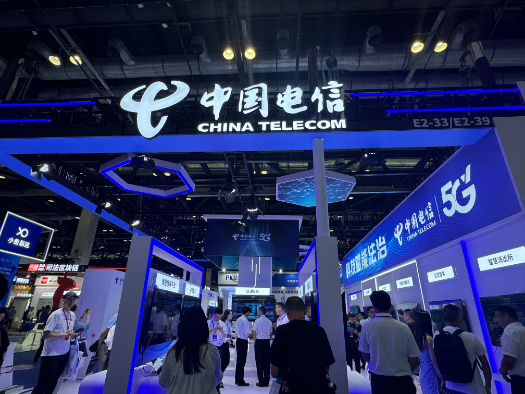
The conference featured an “Industry Voices” segment where leaders from major companies shared insights. Leaders from major companies, including China Telecom, China Mobile, and Didi, shared insights on intelligent connectivity, smart internet development, AI-driven security, and high-quality growth strategies.
The future of intelligent connectivity lies in our ability to harness technological advancements to drive new productivity forces, ensuring that we co-create a smart future over the next thirty years.
Liu Guiqing, Vice President of China Telecom
A roundtable dialogue, “A Decade of Promises,” featured industry veterans such as Charles Zhang, CEO of Sohu, and Zhou Hongyi, founder of 360 Group. They shared their perspectives on the past 30 years of China’s internet evolution, offering unique insights into future trends and entrepreneurial challenges.
The inaugural “Golden Lingguang Cup” China Internet Innovation Competition awarded 12 projects for their outstanding contributions to digital innovation. The awards were presented by Wu Hequan, recognising achievements across categories like artificial intelligence and data elements.
Conference sessions on July 10
The second day of the conference was packed with insightful sessions and forums focusing on various critical areas:
Next-Generation Internet Technology Forum
This forum explored the future of internet technologies, discussing advancements in 5G, the potential of 6G, and emerging internet infrastructures. Experts presented on the integration of these technologies into everyday life and their impact on various industries.
Smart Education Forum
The smart education forum highlighted the role of digital technologies in transforming education. Topics included online learning platforms, AI-driven personalised learning, and the integration of VR and AR in educational environments to enhance learning experiences.
Government Big Data Forum
This session focused on the use of big data in government operations, discussing how data analytics can improve public services, enhance decision-making, and promote transparency. Case studies showcased successful implementations of big data projects in various government sectors.
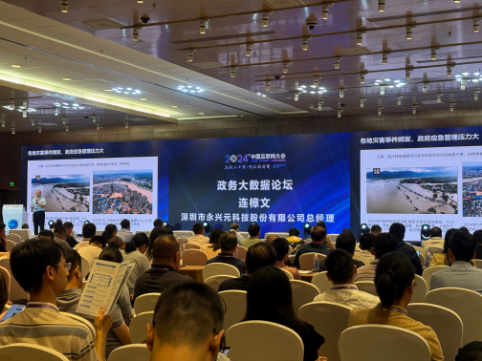
Digital Transformation Forum
Keynote speakers and panelists in this forum discussed strategies for digital transformation in businesses. Topics covered included leveraging cloud computing, implementing IoT solutions, and using AI to drive business innovation and efficiency. Real-world examples from leading companies provided insights into best practices and challenges in digital transformation journeys.
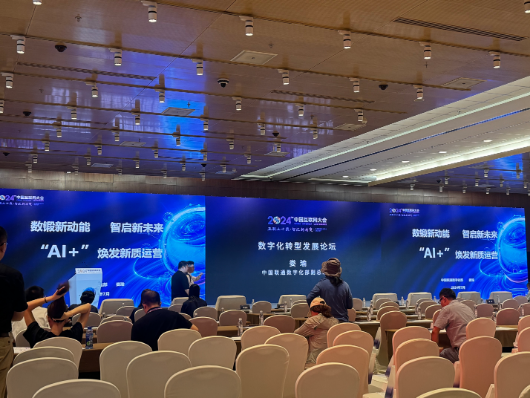
Data Security Forum
The data security forum addressed the growing importance of cybersecurity in protecting data integrity and privacy. Experts discussed the latest threats and vulnerabilities, sharing strategies for building robust security frameworks. Topics included AI in cybersecurity, data encryption techniques, and the importance of cybersecurity in maintaining trust in digital services.
Exhibitions and Demonstrations
Throughout the day, exhibitions showcased cutting-edge technologies and solutions from various tech companies. Interactive demonstrations allowed attendees to experience the latest innovations in AI, IoT, and other digital technologies. The “Future Carnival” offered an immersive experience with AI and futuristic technologies, highlighting how these advancements will shape the future.
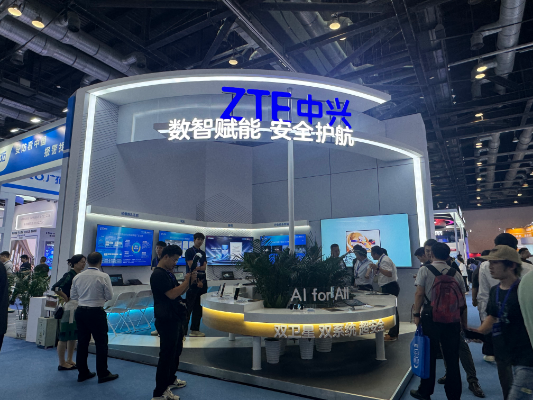
At the exhibition, Huawei showcased its latest achievements in legal tech innovation. Huawei’s legal tech solutions aim to enhance the efficiency and transparency of legal and judicial systems through advanced technological means. Huawei’s intelligent courtroom system employs artificial intelligence and big data analysis to provide smart assistance to judges and lawyers, significantly improving the speed and accuracy of case processing. Additionally, Huawei demonstrated the application of its blockchain technology in the storage and management of legal evidence, ensuring the immutability and authenticity of evidence. Through these innovations, Huawei is not only advancing legal technology but also contributing to the development of a more fair and efficient rule-of-law society.
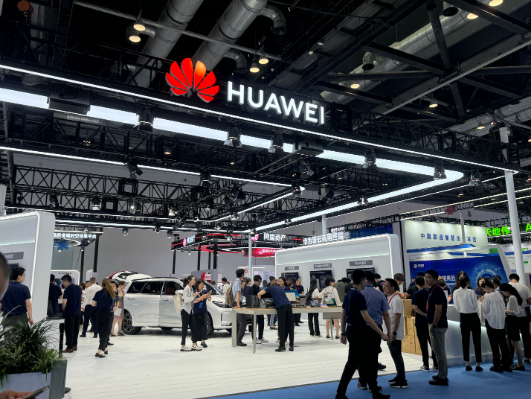
Case Studies on Internet Law
Judges and legal experts shared intriguing case studies on internet law, adding a legal dimension to the discussions. Topics included data privacy regulations, intellectual property rights in the digital age, and the legal implications of AI technologies.
Why it’s important
The conference underscores the internet’s critical role in driving China’s modernisation. Zhao Zhiguo’s emphasis on infrastructure, innovation, integration, and environment highlights a strategic roadmap for future development. These discussions set the stage for new policies and collaborations that will shape the digital landscape in China.
Beijing’s leadership in the internet sector, as outlined by Xu Xinchao, showcases the city’s role as a digital economy hub. The significant revenue figures and proposed initiatives reflect a robust framework for continued growth and innovation.
Commemorating 30 years of internet access in China provides a moment of reflection and celebration, recognising the internet’s profound impact on society and the economy. The insights shared by industry leaders during the “Industry Voices” segment and the roundtable dialogue offer a forward-looking perspective on the challenges and opportunities ahead.
The “Golden Lingguang Cup” awards highlight the ongoing commitment to digital innovation, encouraging new ideas and solutions that will drive the future of the internet in China.
Also read: China’s telecom giants unveil AI-driven 5G strategies at MWC Shanghai 2024
Also read: What are China’s internet courts? AI judges and blockchain evidence
Opinions
As we look back on 30 years of internet progress, it’s clear that this technology has fundamentally transformed our lives. From the way we communicate to how we conduct business, the internet has become an indispensable part of modern society. However, it’s not just about the technological advancements; it’s about the connections and opportunities it has created for millions of people. The personal stories of innovation and perseverance shared by the speakers at the conference remind us that behind every technological breakthrough, there are individuals whose passion and dedication drive progress.
Reflecting critically on the conference, one can’t help but ponder the implications of such rapid technological advancement. While the discussions on AI, smart connectivity, and digital innovation were impressive, there’s also a need to consider the ethical and societal impacts. As we embrace these technologies, questions arise about privacy, job displacement, and the digital divide.
Listening to leaders outline their visions, I couldn’t help but wonder how these advancements will affect everyday people, especially those outside major urban centers or with limited access to technology. The push towards AI-driven security and smart internet raises concerns about data security and algorithmic biases.
In essence, while the conference showcased exciting possibilities, it also highlighted the importance of thoughtful regulation and inclusive growth in technology. As we move forward, it’s crucial to ensure that these advancements benefit society as a whole, not just the technologically privileged few.
In conclusion, the China Internet Conference not only commemorates past achievements but also inspires future innovation, urging us to embrace the potential of the internet to create a more connected and prosperous world.

